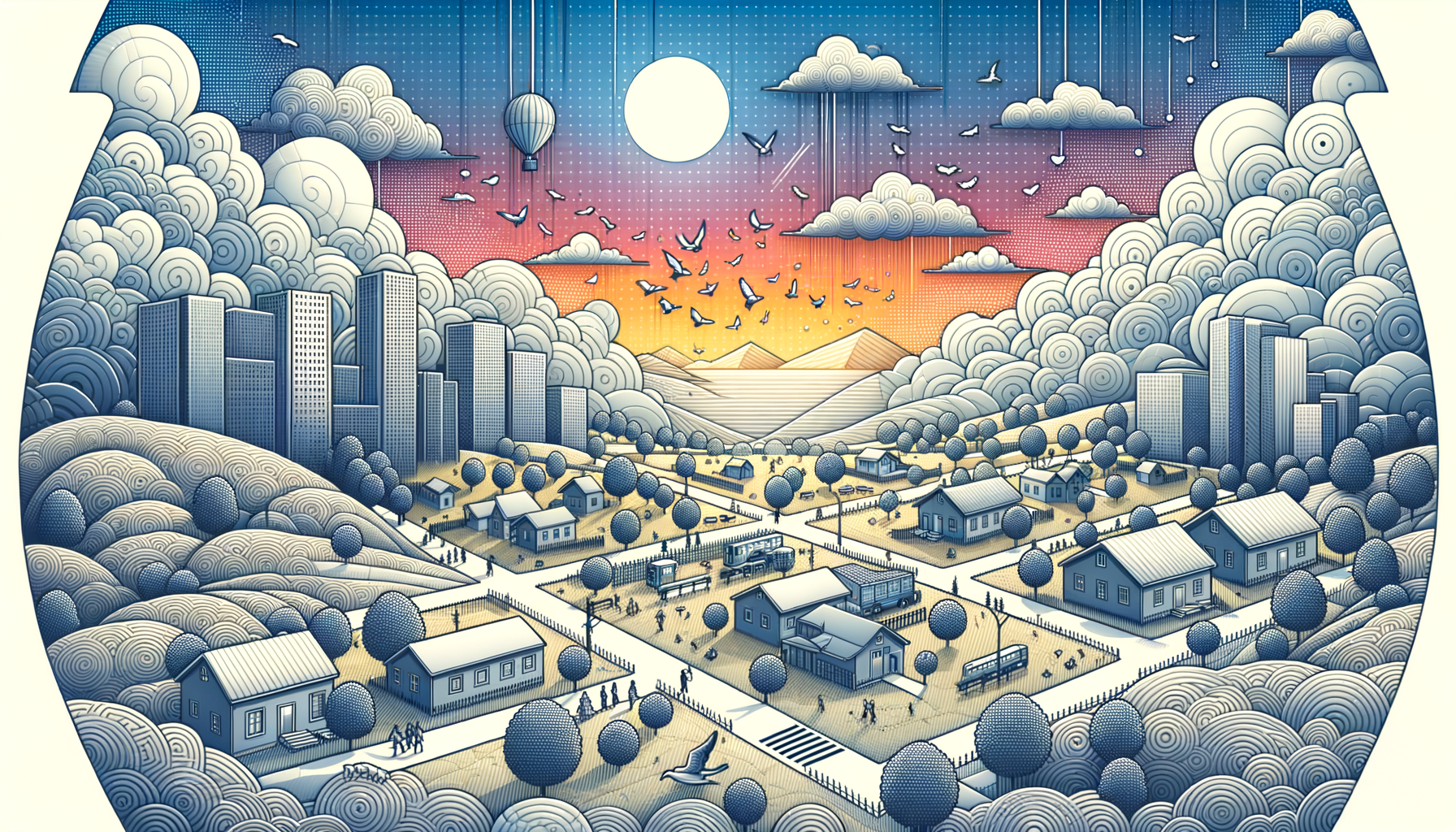I used to think my hometown was my biggest red flag. Imagine starting a first-date story with, “I grew up in a town so small, we felt victorious when we finally got a Walmart.” Charming, right? For years, I couldn’t answer the simplest question—“Where are you from?”—without an internal tug-of-war between pride, embarrassment, and a deep urge to reply, “Somewhere else, I swear.” But, like a crush you refuse to admit exists, my feelings about home have always been complicated.
If home is where the heart is, mine has felt like it’s lived in two places: the family ties and familiar streets of where I grew up, and the bold, itchy dreams that dragged me far away. So, whether you’re a hometown loyalist or the protagonist of your own runaway story, let me walk you through my love/hate relationship with the place that made me.
Act I: The Breakup—Why "Home" Felt Too Small for Me
Growing up in a small town meant knowing every face, every back road, and how to stretch a dollar at the local diner. That sounds quaint—until you’re a teenager craving concerts, late-night joyrides, or thrilling middle-of-nowhere escapades. My version of rebellion was more grounded: staring at photos of New York in glossy magazines, convincing myself I wasn’t meant to stay where everyone knew my last name.
Small towns are weirdly like long-term relationships when you’re not sure if they’re "the one." They’re steady, dependable, but after a while, you start spotting flaws everywhere. The gossip that spreads faster than Wi-Fi. The lack of any decent sushi spot ("Sorry, we’ve got four burger joints, but raw fish? Would you like a can of tuna?"). And the suffocating limits—because no matter how much potential you think you have, someone will remind you not to get "too big for your britches."
When I finally left for college, I packed my bags as though I were Cleopatra setting sail down the Nile: dramatic, triumphant, ready to conquer the world—or, at least, a city where I could get bubble tea at 3 a.m. I wanted noise, crowds, places the fictional characters from TV shows lived (hello, Friends lofts priced at what fantasy must cost). My hometown suddenly felt provincial, outgrown, like an ex-boyfriend who still calls their dog “puppers” unironically.
Act II: The Rebound—But, Oh, Do I Miss You Sometimes
Here’s the thing about leaving home: It’s not as clean a break as it feels at first. Big cities—or wherever it is we run to—are thrilling and full of potential until you realize they’re also exhausting. Turns out, a “fit check” on the subway isn’t everyone admiring your style…it’s most likely someone wondering if you’re in the way.
It only took a few years of city life for me to notice my hometown creeping into the corners of my heart like an ex who pops into your dreams just enough to make you nostalgic. Little things, like the smell of rain on pavement or bonfire smoke on a sweater. Big things, like how silent nowhere feels when the city becomes too loud.
And our small-town rituals—they slap harder than Instagram-worthy avocado toast any day of the week. Let me tell you: city brunches can’t compete with the joy of my dad’s Saturday morning pancakes. Prettiest skyline in the world? Cute, but it’s got nothing on an unobstructed sunset through the fields. Strangely, I caught myself longing for potholes so familiar, they almost feel like local landmarks. You can mock small-town quirks all you want, but they’ve got charm in the right light—especially after paying rent hand-over-fist in a city apartment the size of my childhood closet.
Act III: Home is That Tinder Match You Keep Swiping On
It’s funny, isn’t it? The place I swore I’d outgrow is now my comfort playlist. Sure, familiarity can breed contempt, but it also breeds belonging. Home is like that one friend who remembers every weird thing you used to love—whether it’s old-school video rentals or your obsession with finding four-leaf clovers—and reminds you it’s okay to still claim those parts of yourself.
Here’s what I realized: We don’t need to define ourselves by the allure of where we’ve been—or any shame about where we started. Love-hating home doesn’t make it less a part of you—it just confirms how complex the idea of “home” really is.
For me, growing up where I did taught me loyalty, resilience (pothole maneuvering is a life skill, honestly), and knowing which bars double as impromptu family reunions. Leaving taught me ambition and that not all wide, open spaces run through physical landscapes; sometimes, they’re inside us, waiting to imagine what’s next.
How to Make Peace With Your Roots (Without Writing an Apology Letter to Your Hometown)
Wrestling with your place of origin doesn’t come with a neat instruction manual, but if you’re in that liminal “Can’t stay/Can’t quit you” stage of feeling about home, let me share a strategy that’s worked for me:
-
Stop Romanticizing or Demonizing It: Your hometown isn’t some protagonist or villain in your story. It’s just the opening scene. One with quirks, sure, but those quirks probably shaped what makes you, you. (Yes, even the ugly carpet in the neighborhood bowling alley.)
-
Learn to Appreciate the Little Things: No Michelin-star restaurants? No problem! Take pride in creating your “enchilada night” because home-style meals carry more stories than any five-star Yelp review. Trip to the farmer’s market beats city parking garages every time.
-
Let Nostalgia Do Its Thing (Then Let It Go): Be sweet about the past, but don’t let it weigh you down. There’s nothing wrong with missing parts of home without needing to return permanently. Think of it like visiting an ex’s social media purely to laugh at the photos where they were obviously flexing too hard.
-
Redefine What "Home" Is for You Now: Home doesn’t have to be the place where you were born—it can be the people, the culture, or even a favorite hobby that brings you peace. If your hometown feels like the stiff shoes you outgrew, just remember you’re allowed to “customize” where and how you find a soft place to land.
Like any good relationship, your feelings about home will ebb and flow. Today, my hometown feels less like something I had to escape and more like a quiet confidant—another layer of my story that doesn’t need justification. If you’d told 17-year-old me that I’d one day speak kindly about the same streets I couldn’t wait to leave, I’d have laughed. But hey, maybe growing up means realizing love and hate can coexist, even when it comes to Home Sweet (albeit slightly pothole-ridden) Home.




















